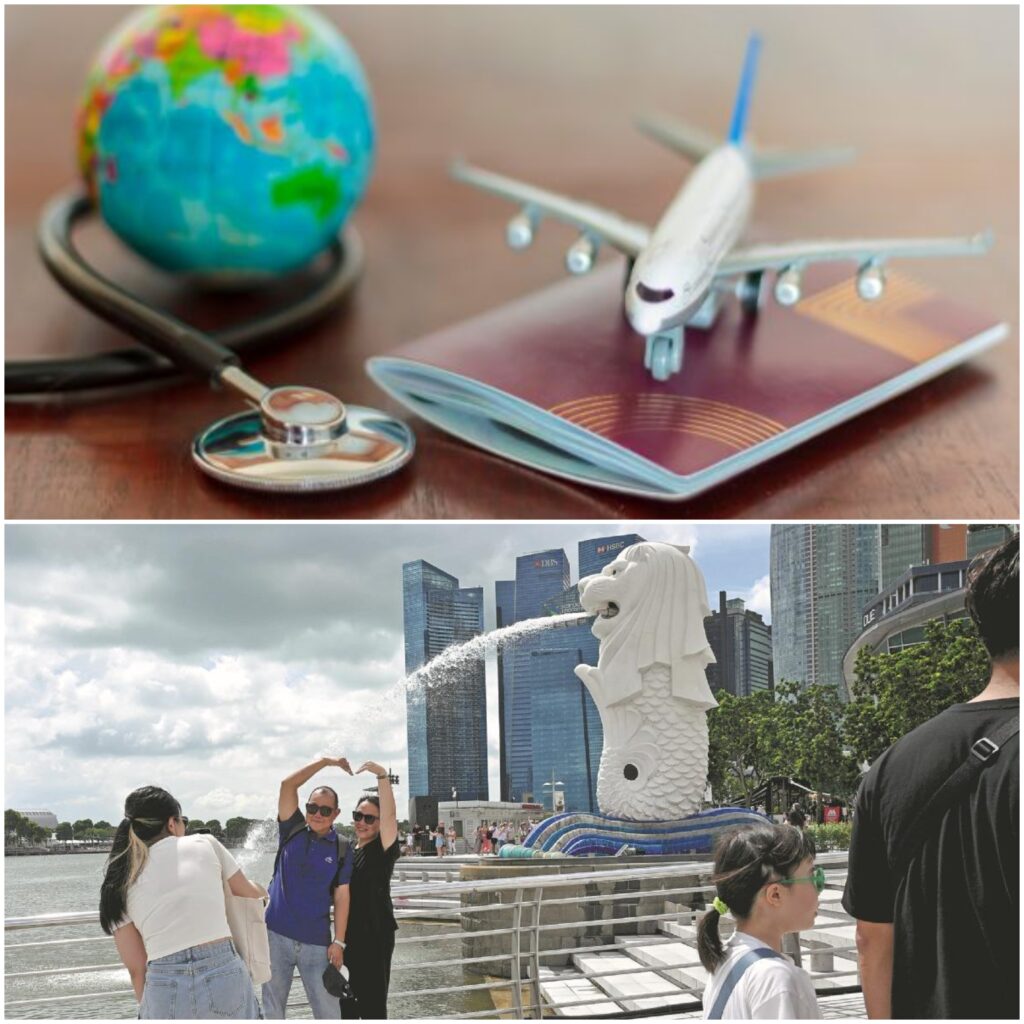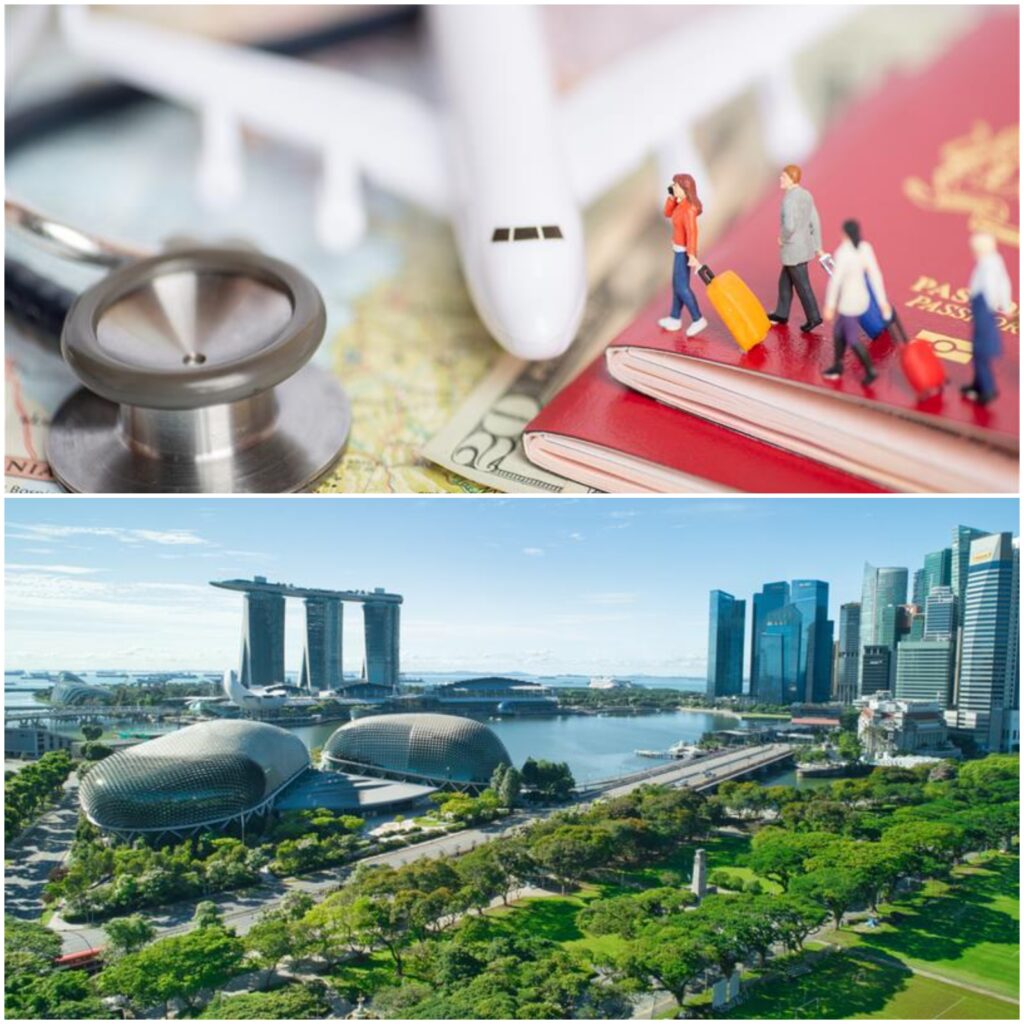One concern that frequently comes up while making travel plans to Singapore is, do travel to Singapore without insurance possible.
Since Singapore is among the safest and most popular tourist locations worldwide, it is necessary to be aware of the dangers and things to think about while going without insurance.
Let’s explore if you can visit Singapore travel to Singapore without insurance, the possible dangers, and the reasons you might want to reconsider leaving your home uninsured.

Can We Travel to Singapore Without Insurance?
- Is Travel Insurance Mandatory for Entry to Singapore?
Travel insurance is not now legally required to enter Singapore, but there are still important things to talk about.
Singapore permits visitors to enter without requiring proof of insurance, compared to certain countries that demand travel insurance to get a visa.
This may give the impression that insurance is not needed, but you should consider the hazards before leaving your house unsecured.
Buy Overseas Travel Insurance Plan for Singapore – CLICK HERE
Risks of Traveling Without Insurance
- While you can travel to Singapore without insurance, you run the risk of facing plenty of unexpected issues.
- Traveling without insurance can lead to large out-of-pocket costs for everything from unexpected medical emergencies to flight cancellations.
- Having coverage for unexpected catastrophes can provide invaluable piece of mind, particularly when visiting a foreign location.
Medical Emergencies and Healthcare Costs
- While Singapore has a reputation for having a top-notch healthcare system, without insurance visitors may find the cost of medical care to be unaffordable.
- You may have to pay thousands of dollars in medical expenses if you get sick or are involved in an accident.
- Without travel insurance, even something as simple as a small injury or food poisoning could result in expensive consequences.
- The majority of insurance policies provide coverage for medical situations that occur overseas, so you have nothing to worry about unexpected expenses.
Read: Is travel insurance mandatory for Australia tourist visa?
Trip Cancellations or Delays
- Unexpected incidents, like delayed or canceled flights, can rapidly ruin your vacation plans, and you will be responsible for the costs if you do not have insurance.
- Airlines may provide rescheduled flights or partial refunds, but they do not pay for lodging or other costs that may occur as a result of delays.
- When plans go wrong, travel insurance usually pays for additional lodging, postponed flights, and even missed connections, saving you money and time.
Coverage for Lost or Stolen Belongings
- Travel insurance can offer a safety net in the case that personal things are misplaced in busy locations like Singapore.
- These situations, which can include misplaced personal belongings, stolen luggage, or a lost passport, can be upsetting and expensive.
- Travel insurance frequently covers lost or stolen property, paying replacement costs for necessary things or emergency assistance.
Travel Insurance Options for Singapore
- For travels to Singapore, some respectable travel insurance providers provide customized plans with medical, trip interruption, and other coverage options.
- Your trip qualities, like the length of stay, the activities you plan to take part in, and your overall budget, should be taken into consideration when selecting a travel insurance policy.
- Affordable short-term insurance plans are widely available from insurance companies, covering anything from medical emergencies to misplaced luggage.

Final Thoughts – Is It Worth the Risk?
While it is not necessary to get travel insurance when visiting Singapore, it is a good idea to consider the advantages and disadvantages before deciding.
Travel delays, missing luggage, and medical costs may quickly mount up, making your holiday an expensive occasion.
Throughout your journey, having the proper insurance can assist reduce financial difficulties and provide you with peace of mind.
Bottom Line
Your specific risk tolerance and financial situation should be considered when deciding whether or without insurance, but for the majority of travelers, the advantages greatly exceed the disadvantages.